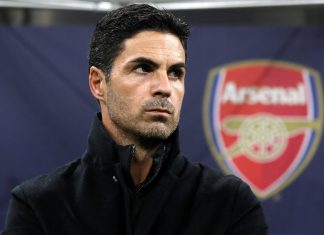The reform process seems to have managed to evade the iceberg ahead though.
Recently a member of FIFA’s Independent Governance Committee, the organisation set up to recommend changes to be made, Alexandra Wrage, quit in protest at the lack of changes and the dropping of key reforms. Among her gripes were the lack of representation of women and independent oversight of executive appointments at the helm of FIFA.
The Independent Governance Committee itself continues to pressure FIFA, but seems to have taken on the role of a kind of pressure group hoping to influence change. They are presenting at the FIFA annual congress in Mauritius at the end of May, where the reform process is supposedly coming to an end, and will hope to get support for the changes they want made to the FIFA structure. They also want to continue their work beyond Mauritius, believing that the reform process is far from over despite what FIFA suggest.
There does seem to be a genuine change of sorts that is happening. Remember back in 2011 the reforms were sparked by the Presidential election in which Mohamed bin Hammam was alleged to have bribed Caribbean voters to support his candidacy. He and Jack Warner, who allegedly conspired with him, were both forced out of the game for good as a result of that scandal.
Two gone.
Already there had been the cases of Amos Adamu and Reynald Temarii, both suspended by FIFA after being filmed by the Sunday Times willing to accept bribes in return for voting for a particular country to host the 2018 and 2022 World Cup.
Heads have continued to roll on FIFA’s all powerful executive committee. Ricardo Teixeira was forced out, the Brazilian football chief of 23 years with nowhere left to turn after Sepp Blatter turned on him and the Brazilian government applied its own pressure. Teixeira was the former son in law of ex FIFA President Joao Havelange, both of whom have now been revealed to have accepted kick backs from FIFA’s former marketing partner ISL. Teixeira was a hugely controversial figure, but was forced from his position, and is being followed shortly by Julio Grondona, giving up power in Argentina after a similarly long spell. And just last week Nicolas Leoz quit, amid reports he was to be fingered in the report into the ISL affair.
So that is all three of the old guard in South America being forced out of their positions. Chuck Blazer has also gone, although not for corruption reasons, but instead opting to retire anyway.
And in the place of these figures? Prince Ali of Jordan, Jeff Webb of the Cayman Islands, Lydia Nsekera of Burundi and Sunil Gulati of the United States. Prince Ali, Webb and Gulati are certainly a new generation – young, modern and transparently minded. People who are genuine reformers. Nsekera is of course a woman, and both she and Gulati had been on the Independent Governance Committee.
This is genuine change now coming at the top of FIFA, the old guard being swept from power gradually and replaced by a more open and democratic generation. The big question though is the one of Blatter. His main rival for power in 2015, Michel Platini, is the head of UEFA of course. And UEFA are the ones who have blocked some of the key reforms. Why? According to the frustrated IGC chief Mark Pieth, it is because of internal politics. Could it be that it is part of the Platini-Blatter dynamic? If UEFA hijack the reform movement, they will deny Blatter crucial credit and potentially strengthen Platini’s hand. Who knows if that really is what is happening, but that appears the implication.
2015 could well end up being the decisive battle in this particular war. Blatter v Platini, a battle for the heart of FIFA.




